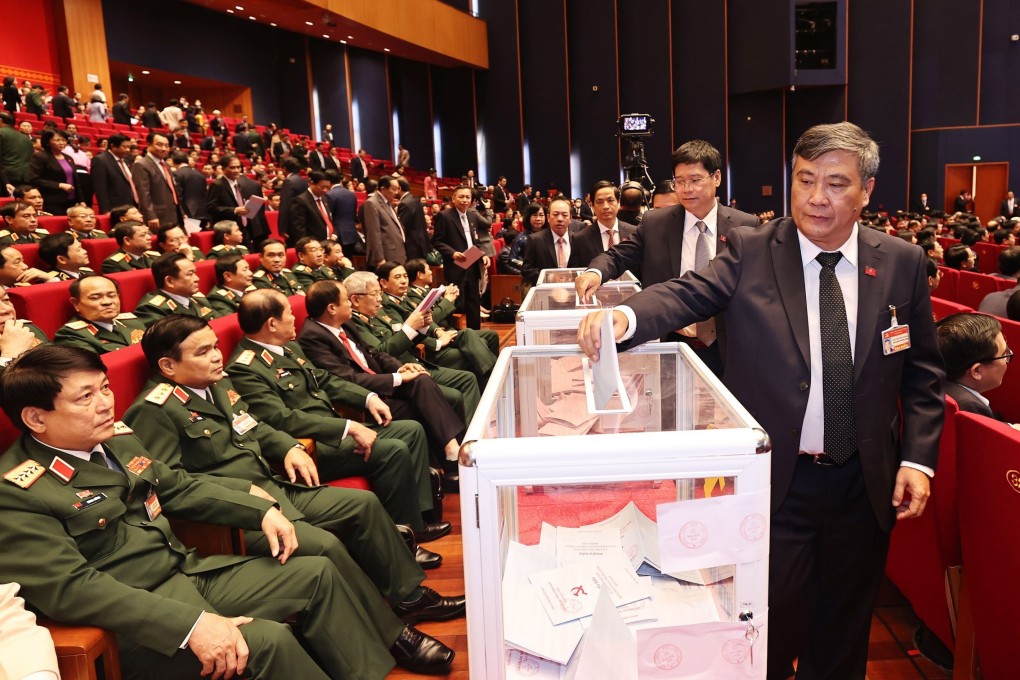Opinion | How Vietnamese army’s rising influence in politics reflects South China Sea security concerns
- What does the election of two top generals to the Politburo of the Communist Party of Vietnam mean for the country’s political, economic and foreign policy prospects?
- The Vietnam People’s Army has also deepened its influence through significant business interests, including in telecoms conglomerate Viettel

The 13th National Congress of the Communist Party of Vietnam (CPV), which concluded in early February, resulted in several surprising personnel arrangements. One of them was the election of two army generals into the party’s Politburo – the first time this has happened in 20 years.
In addition, the number of military representatives in the Party’s Central Committee also increased from 20 to 23, cementing the status of the Vietnam People’s Army (VPA) as the largest voting bloc in the Committee.
‘THE PARTY COMMANDS THE GUN’
Chinese communist leader Mao Zedong famously said in 1938 that “Every Communist must grasp the truth, ‘political power grows out of the barrel of a gun’. Our principle is that the Party commands the gun, and the gun must never be allowed to command the Party”.
The CPV follows the same principle and has always put the VPA under tight control. Party officials and ideologues frequently criticise the idea of depoliticising the VPA and turning it into a “national army” independent of the CPV, something they consider a scheme by “hostile forces” to undermine the Party’s rule.
The CPV’s constitution stipulates that the VPA is subject to the Party’s “absolute, direct and comprehensive leadership”.
The Party needs to maintain tight control over the VPA because the latter plays an essential role in not only national defence but also the regime’s security. Although the Party has never faced the level of threat that its Chinese counterpart did in 1989 when it mobilised soldiers and tanks to crush the pro-democracy Tiananmen Square protests, the CPV views the VPA as a critical tool to deal with imminent threats against itself. The VPA also plays an important role in the country’s socio-economic development. Apart from running more than 20 major state-owned enterprises, the VPA also manages 28 economic-defence zones located in remote border areas. These zones, run by economic-defence corps, are part of the Party’s strategy to protect national sovereignty and promote socio-economic development in these less-developed areas.

